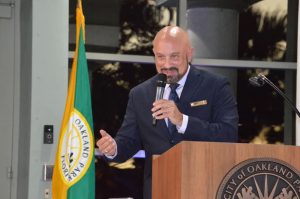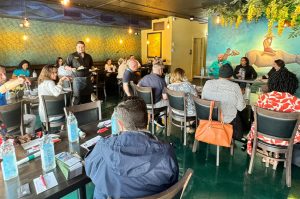Humans beings need each other. This is a concept that was true in the past, is true today and will remain true in the future.
Ghengis Khan was sentenced to die when he, his mother and brother were kicked out of their tribe. The tribe believed that exposure and not having others to depend on would kill them. But this was Genghis Khan! He overcame the odds, formed a new tribe and became the greatest conqueror the world has ever seen. However, thousands of others condemned to a similar fate were not so lucky. The ancients knew that alone we were as good as dead.
In the late 19th century with the Industrial Revolution in full swing, loneliness was still deadly, although it had mutated into a new and modern form. At that time, orphanages had extremely high infant death rates. In some cases those rates were nearly 100%. The pioneering work of Rene Spitz, a psychoanalyst, concluded that the infants were dying largely due to lack of human contact, particularly affection. Those that survived the lack of love, according to Spitz, were, in many cases, emotionally, cognitively and psychologically dysfunctional.
While today we know this, everywhere people are suffering from and dying of loneliness. In fact, according to an article published on Harvard’s Graduate School of Arts and Science website, it is so rampant that loneliness has been labeled an epidemic of public health concern.

Why Are People So Lonely?
We live in a world where we can have all the material things our heart’s desire but we can’t buy that one thing that we need most: love, affection and companionship.
According to a recent study, 47% of Americans feel alone. The loneliness factor affects all ages, ethnicities, races, and genders. Nobody, absolutely nobody, is immune to it.
Today, social media makes it seem like we are connected to each other more than ever, but don’t let that fool you. Social media, in fact, if you pay close attention, gives us clues of the loneliness of others.
For example, a few weeks ago I read a post on Facebook from man asking for companionship while going through chemo, another had a kidney transplant pretty much alone. People often lament the lack of meaningful connections on social media because they are alone. Social media provides a stop-gap measure but it is not the cure for loneliness.
How Does Loneliness Affect Someone's Health?
Loneliness can affect our health in many different ways. It is not the cause of one single disease but the feeling of loneliness can trigger several different physiological reactions that are harmful to our health.
“During my years caring for patients, the most common pathology I saw was not heart disease or diabetes; it was loneliness.”
~Dr. Murthy, former Surgeon General of the United States
Being alone causes stress and stress causes our bodies to react. Reactions to stress can include shortness of breath, panic attacks, muscle tension and other various reactions depending on the person. Continued stress takes a physical toll that can shorten a person’s life. Some people feel so desperately lonely they attempt suicide to the tune of 1.4 million attempts per year. Approximately 50,000 attempts are successful.

How to Help With Loneliness
Help Others
Let’s start off by being there for someone this holiday season. We all have busy lives, but sometimes you just have to put somethings on hold and reach out to others. You never know how doing that can make a difference in their lives.
When it is not the holidays, stay connected to people. If you are thinking about someone there is probably a reason. It is so easy to reach out to someone so just do it! You never know what a difference you can make in someone’s life.

Help Yourself
If you are struggling with loneliness you have to be strong. Don’t allow yourself to fall into a desperate state. Get out and go meet people. Help others, volunteer, join a group and make a difference in someone’s life. In the course of being kind you will make meaningful connections and most certainly attenuate any feelings of loneliness. Loneliness does not have to be a permanent state.



















One Response